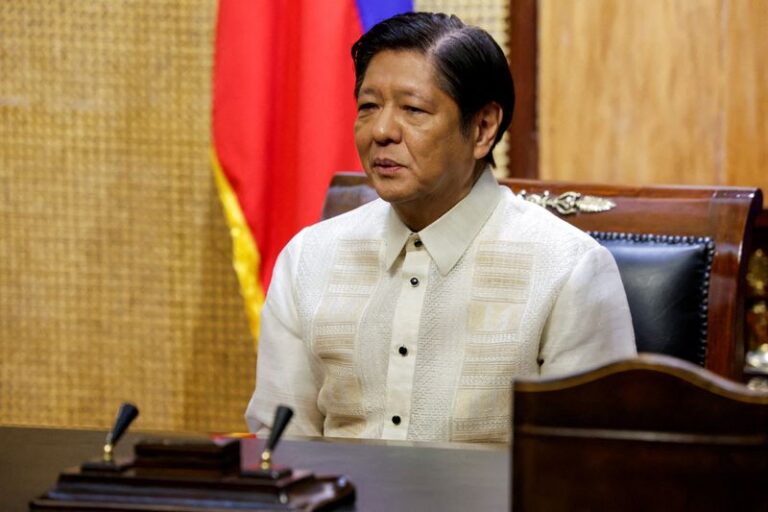MANILA (Reuters) – Philippine President Ferdinand Marcos Jr. said on Wednesday that China’s coast guard’s outline of new rules for potentially detaining foreign nationals in the South China Sea was an escalation and “worrisome”.
China, which is in a dispute over maritime sovereignty with the Philippines and other countries, implemented the 2021 Coast Guard Law, with new rules coming into effect on June 15 that allow it to detain foreigners suspected of trespassing.
“This new policy of threatening to detain our own people is different. This is an escalation,” Marcos told reporters during a state visit to Brunei.
Marcos said the Philippines would “use all contacts with China to deter any aggressive actions” and would allow Filipino fishermen to fish in the South China Sea.
Marcos said that once aggressive actions were under control, “we can all go about our business peacefully.”
China frequently accuses its ships of encroaching into waters in the South China Sea that are part of its neighbours’ exclusive economic zones and has had repeated clashes with the Philippines over the past year.
China’s Foreign Ministry said on Wednesday the rules aim to standardize law enforcement and better maintain maritime order.
“As long as there is no illegal activity, there is no need for any individual or organization to worry,” Chinese Foreign Ministry spokesman Mao Ning said at a regular press conference.
“It is the Philippine side that often causes escalation” in the South China Sea, Mao said, adding that the door was open to dialogue.
Backed by defense allies the United States, Japan and Australia, President Marcos has taken a tougher stance than his predecessor regarding Chinese actions in the South China Sea.
Beijing claims jurisdiction over much of the South China Sea, a transit point for more than $3 trillion in ship-based trade annually.
In 2016, an international arbitration tribunal found that China’s broad claims have no basis in international law, but Beijing rejects the decision. China argues that historical records and old maps clearly show it has sovereignty over much of the waters and many of the islands.
(Reporting by Neil Jerome Morales and Mikhail Flores; Additional reporting by Liz Lee in Beijing; Editing by Martin Petty and Bernadette Baum)

